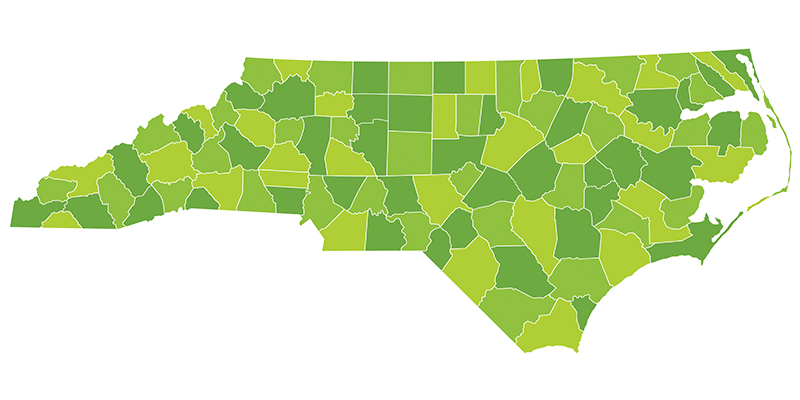More than 400 members from the three NAIOP chapters in North Carolina traveled to the Pinehurst Resort last week for the NAIOP North Carolina State Conference. The all-day conference included a number of sessions related to the state of the industry, along with a general session that included legislative updates on issues at the federal, state and local levels important to commercial real estate, underscoring the importance of advocacy for the state alliance and its members.
NAIOP Corporate’s Senior Vice President for Government Affairs, Aquiles Suarez, initiated the legislative portion of the session, highlighting several federal issues of importance to commercial real estate, including tax proposals to eliminate Section 1031 like-kind exchanges, double capital gains taxes, and modify estate tax rules to tax all of an asset’s appreciation immediately upon a person’s death.
Suarez also discussed a new proposal for a “Billionaire Minimum Income Tax,” noting that it was not an income tax but an annual wealth tax on the assets owned by individuals with total assets over $100 million. Noting that at its inception the income tax applied to only a third of 1% of the U.S. population, establishment of a wealth tax would soon expand to more taxpayers. Suarez discussed implementation of the bipartisan American Infrastructure Law and concluded with discussion on regulatory initiatives, including a proposed rule by the U.S. Securities and Exchange Commission that requires publicly traded companies to disclose the level of greenhouse gas (GHG) emissions related to their business operations and “downstream activities in its value chain,” such as the GHG emissions of their vendors.
I followed the federal discussion with an overview and observation of state and local policy initiatives that are occurring across the country of importance to commercial real estate and our chapters. This included concerns with local governments potentially turning to commercial property taxes and other fees to continue programs and services supported by the one-time infusions of federal funds from the American Rescue Plan.
I continued my presentation by discussing state and local efforts for building electrification through bans on natural gas heating and hot water systems in order to reduce GHC emissions, as part of climate change initiatives. However, I did suggest that replacing natural gas systems with electric ones may actually increase GHG emissions in the Tar Heel state because of North Carolina’s reliance on natural gas in generating the increased electricity that will be need to power the new electric systems in commercial buildings.
The final legislative update focused on the passage of state House Bill 291, which is very similar to the permit reform legislation driven by our local chapter and enacted in the state of Georgia. State Representative Jeff Zenger summarized core elements of his bill, which passed the state House of Representatives on a bipartisan vote of 79-33. These core elements included:
- A permitting entity has 21 days in which to issue a permit.
- During the 21 days, the department shall resolve issues and may seek additional information from the applicant.
- If additional information is needed or the application must be resubmitted, the permitting entity has 15 days from receipt of the information to issue a permit.
- If the permitting entity is unable to issue the permit within 21 days, the applicant may seek approval from a certified third party (engineer) or the Department of Insurance.
- Local governments must remit 2% of all building code permit fees to the Department of Insurance to support associated with their participation in the process.
The passage of HB 291 is a top priority for NAIOP of North Carolina and will be a focal point of our advocacy when NAIOP members travel to Raleigh for our Legislative Day at the State Capitol on June 8.
A notable highlight of the conference was a discussion of the partnership between NAIOP’s Raleigh-Durham chapter and North Carolina Central University (NCCU), intended to promote greater diversity in the commercial real estate industry through a new MBA concentration in real estate. NCCU’s School of Business Dean Anthony Nelson, Ph.D., provided an update on the historically Black university’s progress implementing the new concentration, which was launched last fall. NAIOP Raleigh Durham and NAIOP Corporate are very supportive and will provide at least $175,000 to help fund the program within NCUU’s School of Business.
The state conference was a tremendous success and reflected the importance of advocacy for the state alliance. As long as governments continue to pass legislation affecting commercial real estate, NAIOP members in North Carolina and other states need to remain informed and engaged in the legislative process, from the ballot box to Capitol Hill. Having a seat at the table during the development of policies and regulations that determine the health of commercial real estate and economic development is vital.














